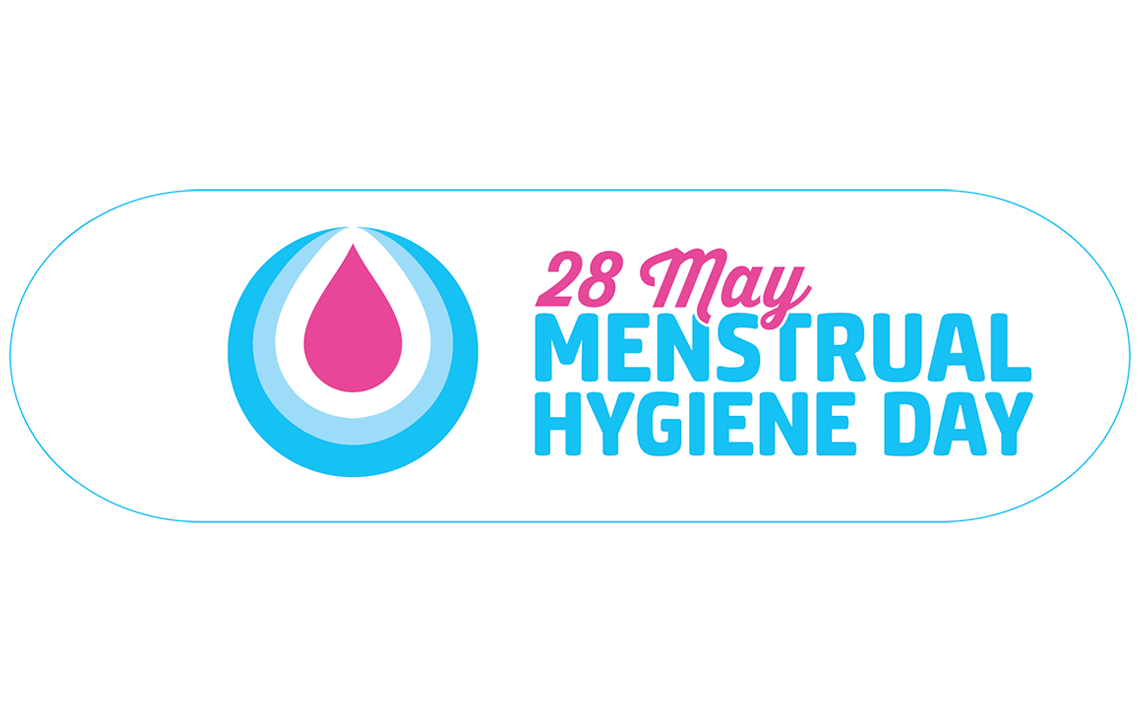Millions of individuals around the world experience discrimination and exclusion as a result of the historical stigma and shame associated with menstruation. An estimated 500 million (25% of all people who menstruate) experience ‘period poverty,’ defined as a lack of access to sanitary products, hygiene facilities, waste management and education.1 Isn’t it time to normalize menstruation, and end period poverty?
Menstrual Hygiene Day
May 28th marks the annual awareness day for menstrual hygiene management. Recognized worldwide since 2014 thanks to the inaugural efforts of the NGO WASHED United, Menstrual Hygiene Day (MHD) strives to break the silence around menstrual health and hygiene and prompt policymakers locally, nationally and globally to take action towards improving access to the needs of those who menstruate. The day not only raises awareness about menstruation but advocates body literacy and gender equality. Even the date of 28/05 is significant, chosen because it represents the 28 days of an average menstrual cycle and the time spent bleeding – usually five days.2
The need to normalize this physiological process that affects over 50% of the global population is highlighted by this year’s theme – “making menstruation a normal fact of life by 2030.” Although some advertisements have begun to upend the decades-long (and somewhat confusing) trend of using blue liquid to depict period blood, the whole experience of menstruation largely remains perceived as some kind of freakish event, an awkward stain to conceal from society. Aunt Flo’s got a way to go still.
Menstruation in the workplace
Over 800 million people are menstruating at any given moment. Periods accompany us to work as much as they infamously like to wreak havoc on our social, physical and emotional lives and wellbeing – though not all people experience debilitating periods. Unfortunately, however, menstruation is perceived as an inappropriate topic for discussion in the workplace, even if those affected by it experience discomfort or stress. In fact, according to the 2020-2021 survey ‘Have Your Bloody Say’ (HYBS) about menstruation in the workplace,* as many as nine in ten menstruating individuals have experienced stress or anxiety in the workplace because of their period, and 27% reported never feeling supported by their employers.3
Recent research from UK workplaces confirms that a cycle of silence exists around periods, perpetuated by the pervasive culture of menstrual concealment.3 Tampons are surreptitiously slipped up shirt sleeves, pants are repeatedly checked for any smudge of red, remarks linking low mood to PMS are tactfully laughed off. Individuals may choose not to disclose their menstrual complaints or not to take sick leave to avoid appearing weak or unreliable, which can have consequences on their mental health. In fact, one in four respondents to the HYBS survey reported feeling as though the time they have taken off due to menstrual health issues had affected their career progression.3
A bloody mess
In my own experience of the monthly hell that is let loose in the uterus, I can attest to feelings of professional inadequacy that accompany the raging headaches and crippling cramps I experience throughout my menstrual cycle. And yes, I mean throughout, not just the menstrual phase of my cycle; I belong to the group of menstruators blessed with less-than-pleasant side effects for most of the month – yippee! Some days are so bad that my limbs snap into foetal position. I spend hours gripping my hot water bottle to my belly, feeling like knives are slashing through my insides. Other days I might find myself passed out on the bathroom floor, listless and feeling broken. “Some folks just have it really bad, who knows why?” say the GPs, “Your scans are fine, just take a painkiller.” Spoiler alert: it doesn’t help much.
Swallowing my niggling and preconditioned sense of TMI (too much information), I have been making a conscious effort to communicate with my manager when I am feeling especially affected by my menstrual cycle. I remind myself that it’s a frequent and often debilitating physiological process and I should not feel ashamed to talk about it. My disclosures at AS&K thus far have been met with compassion and support. If only this were the case for all workplaces…
Flow-ward thinking
Subversion of the historically reticent approach to menstruation demands open and positive conversations about periods. In the workplace, employers and managers, whether they menstruate or not, should be knowledgeable about the potential effects of menstruation on their staff, responding with empathy and understanding to any concerns they might raise. In turn, employees must be encouraged to feel confident and comfortable about raising menstrual concerns with their superiors.
We all need to speak up about menstruation so that we can finally break the stigma around it. It really is about bloody time.
*From the 2020-2021 public-facing survey ‘Have Your Bloody Say’ about menstruation in the workplace, led by the Bloody Good Period charity for menstrual equity.3
References
1. https://wiisglobal.org/period-poverty-a-global-crisis/
2. https://menstrualhygieneday.org/
3. https://www.bloodygoodperiod.com/employers-research
